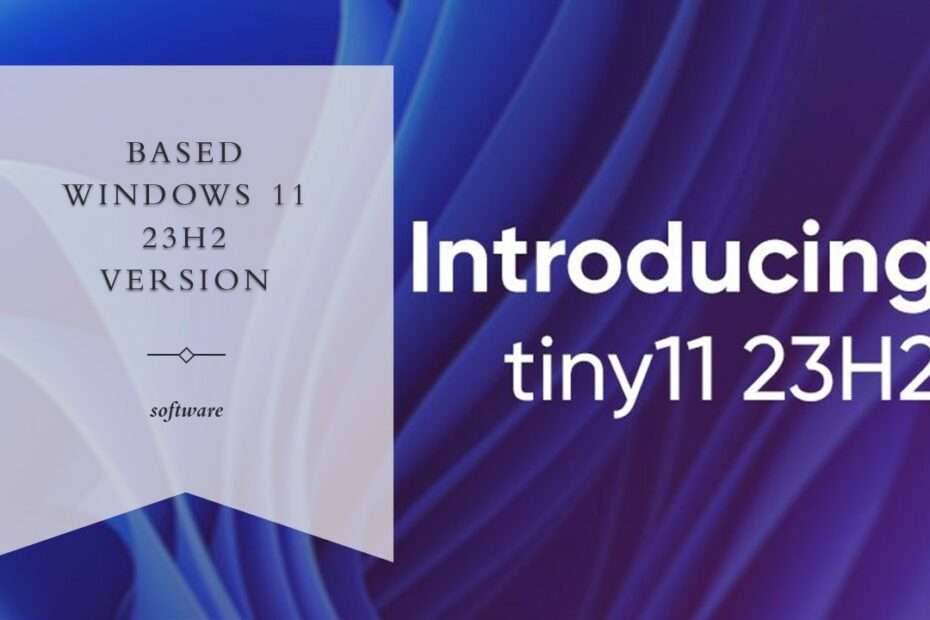The Tiny11 Core is particularly well-suited for various scenarios, making it an ideal choice for those who require the functionality of running Windows 11 within a virtual machine or for testing purposes. This lightweight and efficient core is specifically designed to handle such tasks with ease. Whether you are a developer needing a platform to test software compatibility or an IT professional looking to set up virtualized environments for experimentation, the Tiny11 Core provides the necessary infrastructure. Its minimalistic approach ensures that it consumes minimal system resources, allowing you to allocate more power to the virtualized Windows environment or testing environment. This makes it an excellent choice for those looking to optimize their resources while still running Windows within a virtual machine or for conducting various tests with ease.
While the Tiny11 Core serves a distinct purpose, it’s important to note that this alternative option is not intended to replace Tiny11. Rather, its primary function is to serve as a rapid and uncomplicated testbed or development platform. Despite this differentiation, it’s worth highlighting that it’s designed to run a wide range of applications intended for Windows without the need for additional components. By default, it comes equipped with .NET 3.5 and the Internet Explorer core, ensuring compatibility with most, if not all, Windows applications. This makes it a convenient choice for developers and users who require a hassle-free environment for application testing and development.
In the pursuit of a particular objective, various substantial alterations were necessary, encompassing a range of components. Among these changes, significant adjustments were made to core elements of the Windows system. Notably, the Windows Component Store (WinSxS), an essential part of the Windows operating system, underwent modifications to align with the intended goal. Additionally, Microsoft’s Windows Defender, the built-in security application, was revamped to enhance its capabilities and effectiveness. The Recovery Agent, responsible for safeguarding data in case of unforeseen system issues, was also subject to adaptations to better serve the overall purpose. Furthermore, the Microsoft Edge browser and the Windows Update mechanism underwent transformations, contributing to a holistic shift in the operating system’s functionality.
It is crucial to exercise a heightened level of caution when considering the use of the tiny11 core on production systems. This cautionary recommendation stems from the core’s inherent limitations, particularly in terms of security and serviceability. Tiny11 is primarily designed for lightweight and specialized use cases, emphasizing efficiency and minimalism. While it excels in certain scenarios such as virtualization or testing, it may not provide the robust security and serviceability features necessary for production environments. It lacks the extensive support and maintenance infrastructure found in full-fledged operating systems, which can pose risks when deployed in mission-critical systems. Therefore, it is advisable to thoroughly assess your production system’s requirements and constraints before implementing the tiny11 core to ensure it aligns with your specific needs while maintaining the necessary security and serviceability standards.
While it’s crucial to understand that this option is not a substitute for tiny11, its purpose differs significantly. This alternative serves as a rapid and straightforward testbed or development platform, emphasizing ease of use and convenience. Notably, it eliminates the necessity for additional components to run the majority, if not all, Windows applications, thanks to default support for .NET 3.5 and the Internet Explorer core. This simplifies the process for developers and users, making it an efficient choice for application testing and development. It’s also essential to mention that this alternative is built upon the Windows 11 Pro 23H2 build 22631.2361, further solidifying its compatibility with various Windows applications and software.
This alternative to Tiny11 has a specific focus on simplicity and convenience, making it an excellent choice for a quick-and-dirty testbed or development platform. While it’s not intended as a replacement, its out-of-the-box support for .NET 3.5 and Internet Explorer core streamlines the process of running Windows applications, minimizing the need for additional components. This ease of use makes it a practical solution for those seeking an uncomplicated environment for application testing and development.
The Tiny11 Core is a versatile solution for scenarios where Windows virtualization or testing is required. Its lightweight design ensures that it won’t strain your system resources, making it a perfect choice for professionals and developers seeking a reliable and efficient platform for their specific needs. Whether you’re exploring software compatibility, conducting tests, or any other related task, the Tiny11 Core has you covered, making it an essential tool in your virtualization toolkit.
For those of you who need Tiny11 which is a light version of Windows 11 23H2, you can download the ISO file via the following link.
Tiny11 Core ISO File Download
File Size: 2.01GB
File Type: .ISO
File Version: Tiny11 from Windows 11 23H2
Maybe you liked other articles?

